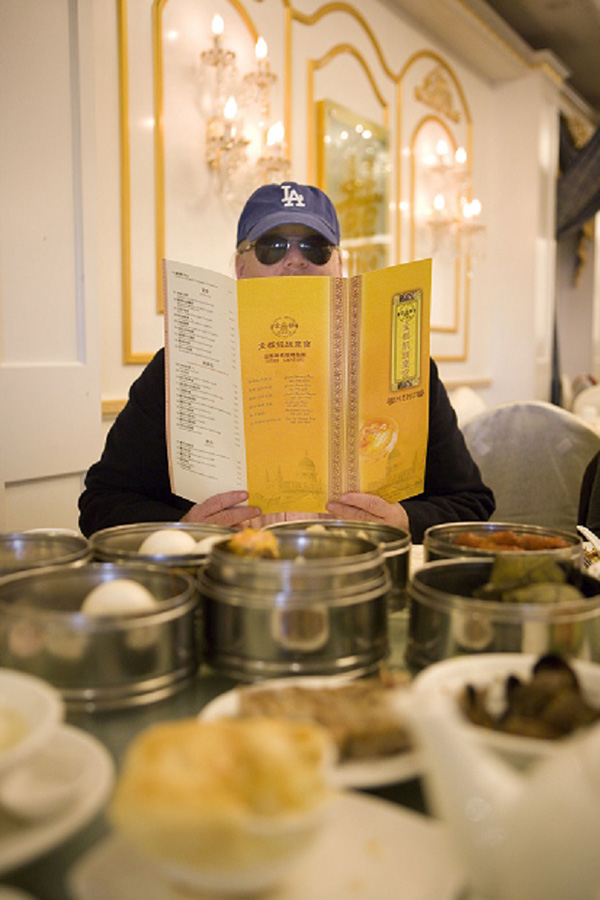
More than just a taste, food can be a visual splendor — from a luscious river of chocolate to a brightly adorned taco truck. It can be one man’s dream or a rat proclaiming universality. Anyone, really, if they try hard enough, can cook.
Ahead of the May 13 Filmworks screening of “City of Gold,” let’s take a look back at a few of the films that have changed our appetite for food in cinema.
As a person who has never picked up a knife or a colander in her life, “Ratatouille” gave me hope, dreams even. Produced by Pixar Animation Studios, the 2007 comedy, which we’ve written about before on this blog, follows Remy, a rat who goes on a journey of self-discovery and learns to follow his dreams of being a world-renowned chef, all with the help of a clumsy garbage boy.
With a nod to Jonathan Gold, the film has its own culinary critique: the forlorn Anton Ego, whose life and perceptions on food are changed with Remy’s signature dish. His lesson, that the best bites can, and often do, come from the most unlikely places, fits most aptly with the style of “City of Gold”.
Gene Wilder immediately became my childhhod hero as Roald Dahl’s visionary icon in 1971’s “Willy Wonka and the Chocolate Factory“. From the first scene of a stumbling old man who, with a rollover flip, is immediately transformed into the man behind the myth: someone who loved candy so much that he built an empire and then chose to share it.
Wonka’s world of pure imagination became our treat, from chocolate rivers to everlasting gobstoppers to dinner-flavored gum. And of course, the edible teacups. Everything is edible or was dreamed to be, pushing the limits of culinary splendor and expanding a child’s imagination. “The Candyman can ’cause he mixes it with love and makes the world taste good.”
How do you tell if you really love food? Like, really love it? Would you devote your entire life to it? Jiro did.
“Jiro Dreams of Sushi” follows the now infamous 89-year-old, who is the proprietor of Sukiyabashi Jiro, a 10-seat, sushi-only restaurant inauspiciously located in a Tokyo subway station. It was the first restaurant of its kind to be awarded a prestigious three-star Michelin Guide rating. Jiro is considered by many to be the world’s greatest sushi chef, and his story of love and commitment to his art remains unparalleled.
Two more recent examples of chefs taking it to the extreme are “Burnt” and the aptly titled “Chef.” Both films delve into the redemptive side of cooking. More than a career, food can heal, and it can act as a means of communication, expression, and evocation.
In “Burnt,” Bradley Cooper’s character seeks to earn that elusive third Michelin star after a drug- and alcohol-fueled mental breakdown (a motif for Cooper films recently?). He fights his way back, learns to love food again, and pushes tirelessly. The industry is never easy, and nothing is handed to you.
In “Chef,” Jon Favreau’s character is forced out of a successful restaurant for which he has lost passion. With an inability to be truly expressive, to cook the foods he wants, that he knows is a risk worth taking to bring a restaurant on the verge of mediocrity, Favreau gets up and leaves. He takes his imagination to the only place he can find: a beat-up food truck, one that Jonathan Gold might be proud of. The film is set in Los Angeles, and it continues one of Gold’s messages: elite restaurants can indeed be surpassed by the clunker on the street, if the skill and the love are there. Favreau brings the love, and the lines grow. Word spreads, and culinary hopes of hungry Angelinos are met.
Big or small, old or young, a five-star restaurant or your grandmother’s food, anyone can cook! And those like Gold will be there to guide you toward the world’s best eats, the foods that define a city, from those who love it most.
Megan Ginise studies journalism and public relations at Fresno State. She currently serves as the Filmworks development assistant.
